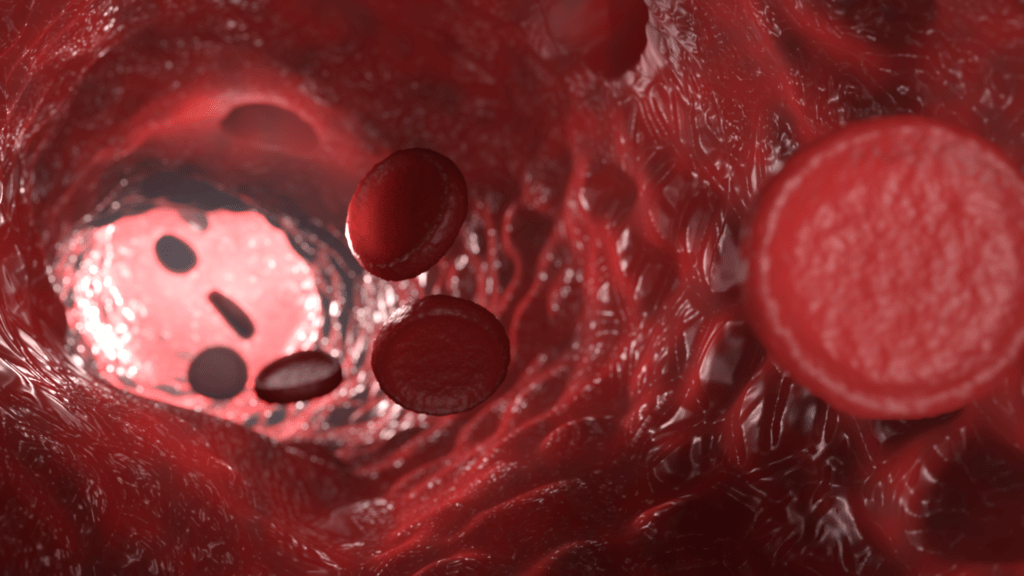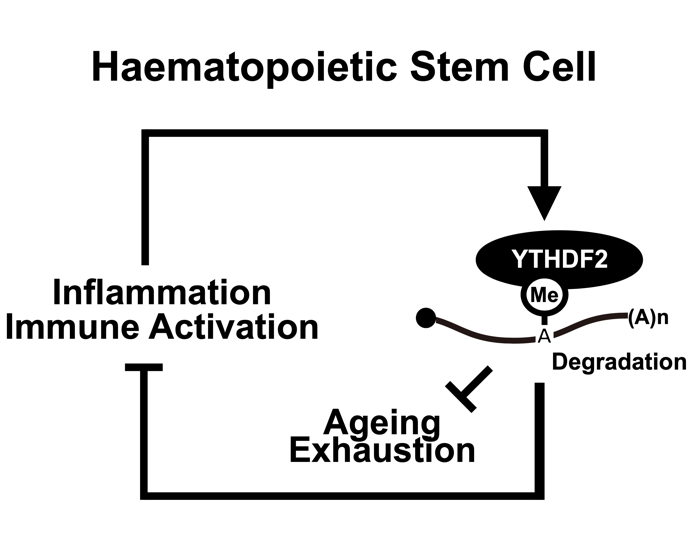Study identifies protein that protects blood against premature ageing

Researchers from Barts Cancer Institute (BCI), Queen Mary University of London, and the University of Edinburgh have discovered a key protein that supports the production of healthy blood cells throughout life by regulating the inflammatory response. This is the first study to identify a protein that directly keeps in check blood stem cells’ immune responses to protect them from excessive damage and premature ageing.
Safeguarding blood stem cells
Blood stem cells - also known as haematopoietic stem cells (HSCs) - continually produce all of the blood and immune cells needed in the body. Scientists have long puzzled over how these cells protect themselves whilst combating infection and regulating the inflammatory process. The study, published in the Journal of Experimental Medicine, has identified a protein called YTHDF2 that safeguards HSCs while they are fighting infection, enabling them to continue to function correctly throughout life.
The study found that the YTHDF2 protein protects the long-term integrity of HSCs by regulating the activity of genes that drive inflammatory processes, preventing an excessive inflammatory response that would otherwise damage HSC function.

To understand the role of YTHDF2 in protecting HSCs, the team of researchers studied a preclinical model that lacked the YTHDF2 protein. After treating YTHDF2-deficient young mice with a chemical that mimics a viral infection, the researchers observed that their HSCs displayed signs of exaggerated chronic inflammation that limited the long-term ability of the HSCs to produce new blood cells.
During the ageing process, HSCs naturally lose their potency and ability to manufacture new blood cells, leaving older adults more vulnerable to infection. In the absence of YTHDF2, the damage to the young mice’s stem cells altered the production of blood cell types, causing them to resemble the blood of much older mice.
The research was performed in collaboration with Harvard Medical School, Georg-Speyer-Haus and Goethe University, and the University of Oxford, and supported by Cancer Research UK, Barts Charity and Wellcome.
Preventing inflammation-induced exhaustion
During infections, HSCs start to produce vast numbers of specialised immune cells needed to fight off the invading pathogen. However, the process is an emergency response and needs careful regulation to avoid the stem cells from becoming exhausted and unable to function correctly in the future.
Professor Kamil Kranc, from BCI’s Centre for Haemato-Oncology, who jointly led the study, said:
“We know that inflammatory pathways induced by infection force blood stem cells to rapidly produce immune cells to help combat infections. However, these pathways can eventually exhaust stem cells or cause their premature ageing, and it is important to understand how this can be stopped. We hope that our new discovery that YTHDF2 prevents this inflammation-induced exhaustion can be harnessed to therapeutically protect blood stem cell integrity during infection.”
Professor Dónal O'Carroll, of the University of Edinburgh's School of Biological Sciences, who co-led the research, added:
“Our investigations not only uncover the key significance of YTHDF2 in protecting blood stem cells but also highlight the importance of mRNA modifications in this process. One key function of YTHDF2 is to bind to the m6A chemical modification on mRNA and promote degradation. Our work demonstrating that YTHDF2 downregulates the activity of pro-inflammatory genes may establish a paradigm whereby m6A mRNA modification regulates inflammatory pathways in blood and also other tissue stem cells.”
Category: General News, Publications

No comments yet